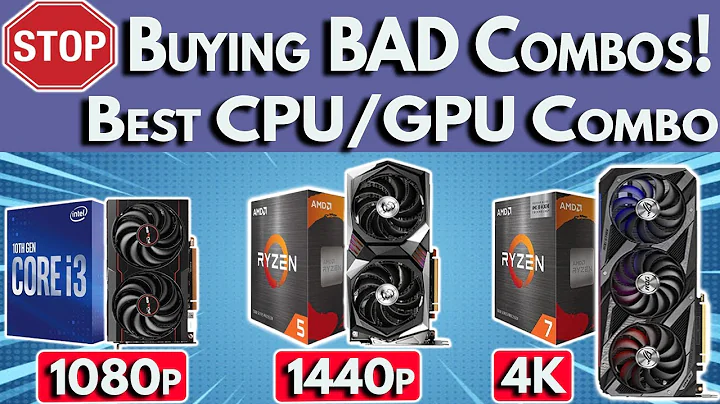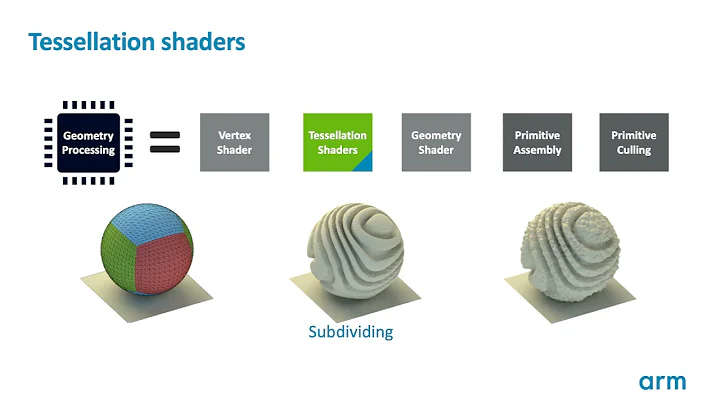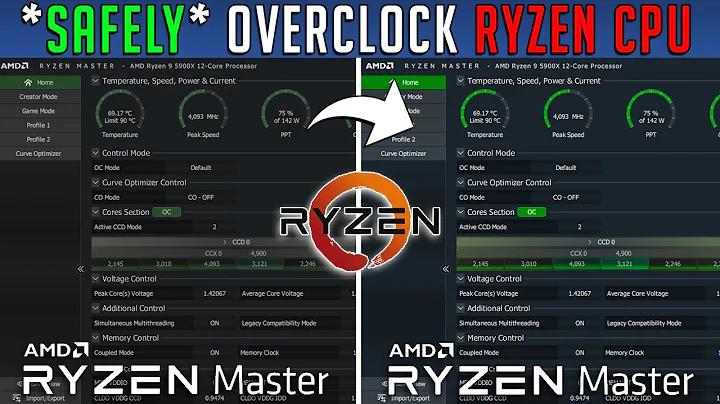Is the AMD RX 480 the Ultimate Budget Graphics Card?
Table of Contents
- Introduction
- Overview of the AMD RX 480
- Specifications and Features
- Performance Comparison: RX 480 vs. R9 380X
- Performance Comparison: RX 480 vs. GTX 970
- Power Consumption and Cooling Performance
- VR Compatibility and Performance
- Heaven Benchmark Results
- Real-World Gaming Benchmarks
- Conclusion
Introduction
Hey there, folks! It's Waj here, and I hope all of you are doing great. In today's article, we'll be taking a deep dive into the AMD RX 480. This graphics card has been making waves in the market lately, offering impressive performance at an affordable price point. We'll discuss whether it's worth upgrading to this card, especially if you're into quad HD or 1080p gaming. And hey, don't worry, it's also VR compatible! So, let's jump right into it and explore the various aspects of the AMD RX 480.
Overview of the AMD RX 480
The AMD RX 480 is based on the Polaris 14-nanometer architecture, which is a complete redesign compared to the previous Fiji architecture used in the 300 series. With around 2300 stream processors and 36 compute units, this graphics card falls between the performance of the R9 390 series and the R9 380X. The boost clock on the factory-spec RX 480 goes up to 1266 MHz, offering solid gaming performance.
Specifications and Features
The RX 480 boasts some impressive specifications and features. It comes in two variants: a 4GB model and an 8GB model, with a price difference of around $40 to $50. One of the highlights of the RX 480 is the inclusion of HDMI 2.0b, which enables 4K resolution at 60Hz refresh rate, making it perfect for hooking up to a 4K television. Additionally, it supports DisplayPort 1.3 and 1.4, allowing you to connect high dynamic range displays and FreeSync monitors.
Performance Comparison: RX 480 vs. R9 380X
Let's talk about performance. When we compare the RX 480 to the R9 380X, the RX 480 outshines its predecessor. In the Heaven benchmark at 1080p, ultra details, with no anti-aliasing, the RX 480 scored an average of 71.4 FPS, which is significantly higher than the 380X's performance. The RX 480 also managed to surpass the GTX 970, which was the minimum requirement for most VR systems at the time.
Performance Comparison: RX 480 vs. GTX 970
Moving on to the comparison between the RX 480 and the GTX 970, the RX 480 gives tough competition to its NVIDIA counterpart. In real-world gaming benchmarks, the RX 480 performed admirably, proving to be a solid choice for gamers on a budget. It offers similar performance to the GTX 970 but at a more affordable price point.
Power Consumption and Cooling Performance
Power consumption and cooling performance are crucial factors to consider when purchasing a graphics card. The RX 480 impresses with its efficiency, drawing about 167 watts at full gaming load, which is relatively low compared to the R9 380X's 188 watts. However, the stock cooler on the RX 480 leaves much to be desired. It features an outdated blower fan design, which results in higher noise levels and temperatures. At full gaming load, the GPU reached temperatures of around 83 degrees Celsius, which could be concerning for prolonged use.
VR Compatibility and Performance
For all the VR enthusiasts out there, the RX 480 delivers solid performance. The Steam VR benchmark showed that the RX 480 scored about 6.8 points when paired with an Intel i7-6700K processor, placing it above the minimum requirement for most VR-based systems. This means you can enjoy a smooth VR experience with this graphics card without breaking the bank.
Heaven Benchmark Results
In the Heaven benchmark at 1080p, ultra details, with no anti-aliasing, the RX 480 showcased impressive performance. It achieved an average FPS of 71.4 and a minimum FPS of 23.1, outperforming both the R9 380X and the GTX 970. Considering the price point of the RX 480, these results are undoubtedly impressive.
Real-World Gaming Benchmarks
To give you a clearer picture of the RX 480's capabilities, we ran several real-world gaming benchmarks. The RX 480 managed to handle popular titles with ease, proving itself as a reliable and affordable option. Whether you're into AAA titles or eSports, the RX 480 offers a satisfactory gaming experience without putting too much strain on your wallet.
Conclusion
In conclusion, the RX 480 is undoubtedly a great value for your money. It offers excellent gaming performance, especially for its price range. While the stock cooler could use some improvements, aftermarket coolers are available, which can significantly enhance the cooling performance. With its affordability, VR compatibility, and solid gaming performance, the RX 480 is worth considering for gamers on a budget.
Highlights:
- The AMD RX 480 offers exceptional value in terms of gaming performance and affordability.
- With its Polaris architecture, the RX 480 provides significant improvements over its predecessor, the R9 380X.
- The inclusion of HDMI 2.0b and DisplayPort 1.3/1.4 makes the RX 480 perfect for 4K gaming and high dynamic range displays.
- The RX 480 outperforms the GTX 970, making it a worthy competitor in the mid-range graphics card segment.
- Power consumption is relatively low, although the stock cooler could be improved for better cooling efficiency.
- The RX 480 is VR compatible and offers satisfactory performance for VR-based applications.
- Real-world gaming benchmarks demonstrate the RX 480's ability to handle popular titles without breaking a sweat.
 WHY YOU SHOULD CHOOSE TOOLIFY
WHY YOU SHOULD CHOOSE TOOLIFY
































